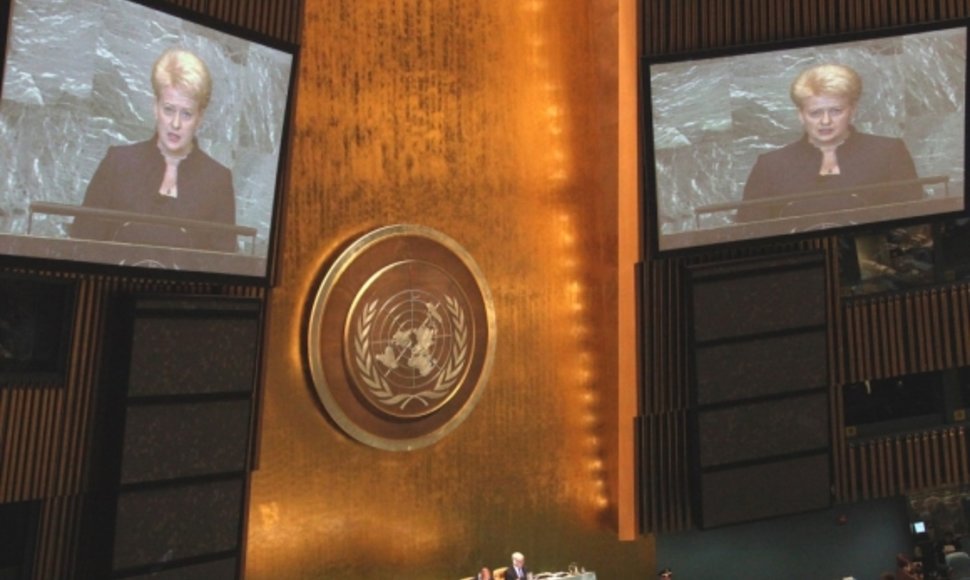During a meeting in Lithuania, presidents of the Baltic states were cautious about comparisons of the Palestinian struggle against Israeli occupation to the efforts of Lithuanians, Latvians, and Estonians against the Soviet Union.
"As there is no common position in the EU, which should be forming such positions in a more general manner – as far as we know, about nine countries are in support and the others abstain – Lithuania will abstain in tomorrow's ballot," Grybauskaitė told journalists.
"It probably wouldn't be possible to compare, although we understand the striving for freedom and we support all nations that seek it peacefully," the president said in comment of the comparison between Palestine and the Baltic states.
Estonia's President Toomas Hendrik Ilves said the Baltic states would want the EU to be united during the ballot over the status of "observer state” to Palestine's local governance, however, did not give a direct answer about the Estonian vote.
Speaking about the resemblance to the Baltic states, he replied: "There are certainly similarities but there are also differences."
"There was no Palestinian state that was occupied, it's a territory that was occupied. One has to be very careful with historical analogies, especially since we have seen historical analogies abused quite a bit in the past and we've been victims of it, the abuse of historical analogies," the Estonian president said.
Latvia's leader Andris Berzins also dodged a straightforward answer on the Riga vote, saying that "the Latvian delegation has not yet seen the last version of the proposal."
The vote to upgrade the Palestinian status from “observer entity” to “observer state” will take place at the UN General Assembly on Thursday. If endorsed, the step would indirectly recognize Palestine's independence, paving way for filing pleas with the International Criminal Court in the Hague.
Observers are certain that Palestine would draw majority support, despite opposition from Israel and the United States. France, Spain, Austria, and Denmark have declared plans to support Palestine.
Last year, Lithuania was in a clear minority when it voted against accepting Palestine to the UN Educational, Scientific and Cultural Organization (UNESCO), saying the membership would burden the international efforts to seek an acceptable solution on Palestine's statehood objectives.
In addition to Lithuania, Palestine's UNESCO membership was objected to by 13 countries, while 107 were in support, and 52 abstained. Positions of EU member states were split then.
The Lithuanian move was then criticized by Iceland's former foreign minister Jonas Baldvin Hannibalsson who made a substantial contribution to Iceland becoming the first country in the world to recognize the declared independence of the Baltic states in 1991 – in his opinion, paralels between Palestine and the Baltic states are obvious.












